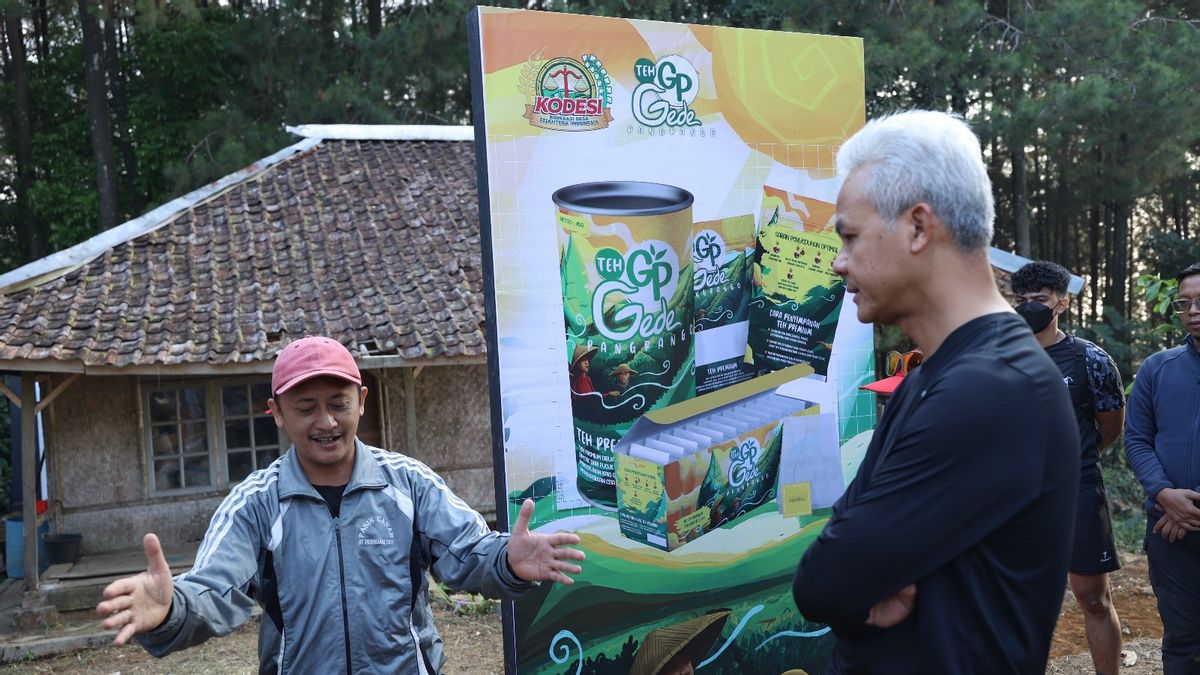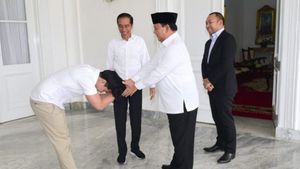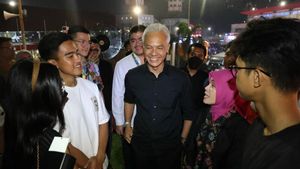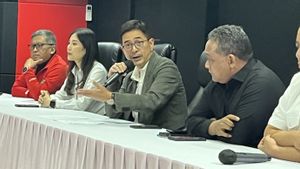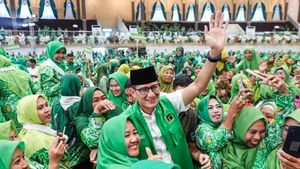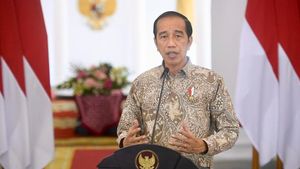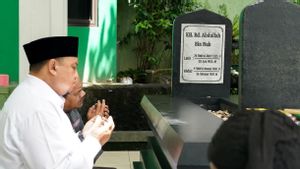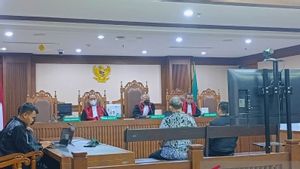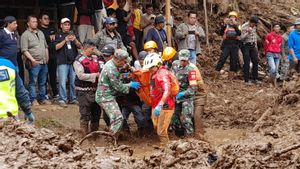CIANJUR - The presidential candidate (candidate) in 2024, Ganjar Pranowo, visited and stayed in a remote village at the foot of Mount Gede, Cianjur, West Java. Not only ordinary visits, Ganjar came to run one of his flagship programs, namely downstream agriculture to achieve food sovereignty.
In this area, Ganjar collaborated with the Indonesian Prosperous Village Cooperative (Kodesi) belonging to the All-Indonesian Village Government Apparatus Association (Papdesi), to initiate the construction of a premium tea factory in Tegallega Village, Warungkendang District, Cianjur Regency, West Java. It is known, Ganjar is the Board of Trustees of Papdesi.
"This tea factory will produce premium tea that we give the GP Tea brand. That stands for Teh Gede Pangrango, because this area is at the foot of Mount Gede and Pangrango," said Fery Kurniawan, factory consultant, Thursday, October 5.
The tea factory will later be managed by young people. Meanwhile, as a pilot project, this factory will manage 4 hectares of tea plantations and is planned to produce 200 kg of tea leaves per day.
"For the price, because this is premium tea, it is very high. Of course with this result, it will make the tea farmers in this village more prosperous," he said.
The young millennial farmers who will be involved in the program said they were very happy. Because with this community empowerment program, the economy of the majority of the people who are tea farmers will increase.
"Of course we are very enthusiastic because Pak Ganjar initiated this for the community. And we young people are involved as driving motors."
"Hopefully, of course, we young people don't need to go to the city to work, but we can work in villages with income no less than those in the city," said Nandri Rivaldi (29), one of the millennial farmers of Tegalega Village.
Meanwhile, Ganjar said that there is a lot of potential in villages that can be optimized. For example, in Tegallega Village, where there is the potential for tea plantations that can be managed better for the welfare of the community.
"There is something interesting in this village, there are millennial young people who mobilize farmers. They are ready to build a tea factory with premium tea or special tea products. Of course this is a concrete example of how we do downstream agriculture which we hope to improve the welfare of farmers. This is cool," he said.
And what's interesting again, continued Ganjar, is that the tea factory is managed in collaboration with the Code, the village cooperative fostered by Papdesi. If this program is successful, it can be implemented and developed in other villages throughout Indonesia.
"It is very possible to develop it in other villages, of course with their respective business units and local wisdom. If everyone can do that, then we can imagine how much income will be generated. This is part of the downstreaming of agricultural products that we want and the ending of our ideals of realizing food sovereignty can be achieved," he added.
SEE ALSO:
However, Ganjar continued, this is not an easy job. The government must step in and encourage these programs to run. In addition to continuing to provide assistance, training and providing convenience for access to capital, said Ganjar, the government must also be offtaker of the products produced.
"If they are already running and producing, the government must be the offtaker. Enter all these products into e-catalog and obligatory ministries and local governments to buy. So for example there is an event or welcoming state guests, this special tea is made by millennial farmers in Cianjur," he concluded.
The English, Chinese, Japanese, Arabic, and French versions are automatically generated by the AI. So there may still be inaccuracies in translating, please always see Indonesian as our main language. (system supported by DigitalSiber.id)
